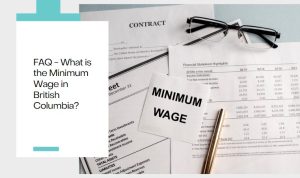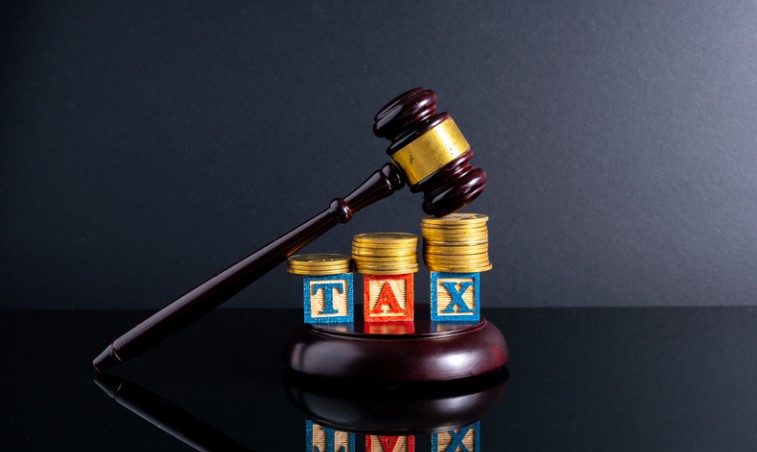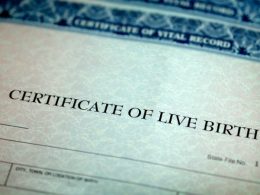Minimum wage laws have been in place to provide fair pay to workers throughout the country. While the laws are based on a national standard, each province has their own minimum wage that may be higher or less than this average. To help you understand what is the minimum wage in British Columbia, we will share this blog with other information like who benefits from this change.
What is the Minimum Wage?
The minimum wage is the legally mandated lowest wage that employers can pay their employees for their work. The minimum wage varies by country and even by region within a country.
It’s important to note that some jobs, such as tipped positions like servers and bartenders, may have a lower minimum wage with the expectation that their tips will increase their earnings to at least the minimum salary.
What is the Minimum Wage in British Columbia?
The provincial government sets the minimum wage in British Columbia. However, this amount varies from one industry to another and even between different workers within the same industry.

The BC government uses two methods for determining when it should increase its minimum wage:
- It considers how much inflation has been happening over time
- It compares wages across industries that are similar in size and output (such as restaurants and hotels)
The minimum wage in British Columbia is $ 15.65 per hour, updated annually on October 1st by the B.C. Ministry of Labour and Advanced Education. The rate applies to employees who do employer hires as regular or casual workers on a full-time or part-time basis with no more than three months of continuous employment within 12 months.
The minimum wage does not apply to farm workers, hunting and fishing guides, or babysitters. The minimum wage also does not apply to employees who are paid by an employer on a piece-rate basis as long as the employee receives at least $3 per hour for each hour worked in addition to their piece-rate earnings.
What Are The Overtime Laws In B.C.?
Overtime is a way to pay employees for working more than 40 hours in a week. If you work over 40 hours, the province of British Columbia will consider your wages as overtime. You can be paid 1.5 times the regular hourly rate for each additional hour on duty or shift exceeding 40 hours.
Overtime is paid after eight hours at double time (2x). After this point, it becomes 2x until the end of the day and then 4x after midnight until 5 am when regular working hours resume.
Can You Live On Minimum Wage In B.C.?

It’s possible to live on minimum wage in British Columbia. If you’re a student and have no other income, you can make do with the federal minimum wage of around $15 per hour. If you are training to become a teacher or nurse and aren’t being paid anything at all, chances are that your employer will pay for the rest of your tuition costs out of pocket if it doesn’t cost them too much money.
If this isn’t an option, but you still want to know how much money someone who works full-time would need monthly before taxes—that number is just under $2k total!
If you’re looking for a part-time job, the minimum wage in British Columbia is $15.65 per hour. If you have any other source of income (like your parents), this number will be lower for you than it would be if you were living alone and supporting yourself on just minimum wage.
Exemptions to the Minimum Wage in B.C.
The BC Employment Standards Act allows employers to pay some people less than the minimum wage. This is called an exemption, and it can be used in several situations:
If you have a young employee who does not yet meet the legal requirements for minimum wage employment, employers may be able to pay them less than the regular rate.
You may also qualify for an exemption if your company has 25 or fewer employees and meets all other requirements for this type of exemption, such as being a non-profit (or at least trying hard).
If you have someone who works for you that is disabled and they are not able to do the same type of work as other employees at your company, there may be a way for employers to pay them less than minimum wage. However, this can only be done if the person has been approved by the Social Security Administration (SSA) or another government agency as being eligible for disability benefits.
Liquor Services

Those who offer liquor include those who:
- Work primarily as a food or beverage server or both
- Serve alcohol on a regular basis to visitors, customers, patrons, or members
- Work in a bar or restaurant that has a liquor authorisation
While liquor servers were previously given the minimum wage plus tips and gratuities, as of June 1st, 2021, they will be required to receive the regular minimum wage plus any tips and gratuities they receive.
Live-in Camp Leaders
Those who work as live-in camp counsellors include those who:
- Are hired by a charitable organisation at a seasonal or summer camp for people under the age of 19
- Campers should be instructed and counselled
- Provide those services on an all-day, live-in basis without charging for the privilege of residing and sleeping at the facilities
Live-in camp leaders are compensated on a daily basis rather than an hourly basis.
Their daily salary is $125.06 as of June 1st, 2022.
Live-in Home Support Workers
Those who provide live-in residential care include those who:
- Work for an agency, corporation, or another employer that provides live-in support services (via a government-funded program) for anyone with an acute or chronic illness or disability that does not necessitate hospitalisation
- Provide those services on an all-day, live-in basis without being charged for living and sleeping at the facilities
Their daily wage is $116.68 per day or half day worked as of June 1st, 2022.
Resident Caretakers

Resident caregivers are those who:
- They are hired to supervise or care for people in a group home or family-style residential dwelling and are expected to live on the premises while working.
- Foster parents, live-in home care workers, and domestic or night attendants are not included.
Residents are compensated on a regular basis.
As of June 1st, 2022, the minimum salary for resident caretakers in apartment buildings with 9 to 60 suites is $937.82 per month, plus an additional $37.58 per suite, and $3,194.43 per month for buildings with more than 60 suites.
Other exceptions to the minimum wage legislation in B.C. include farm workers who harvest crops and can work on a piece rate.
When you work on a piece rate, you are paid based on the amount of work that has been agreed upon in advance.
Piece rate labour is calculated as follows: piece rate x weight or volume selected.
How Do I Get Paid the Minimum Wage?
You must know how to get paid if your employer is paying you under the minimum wage. There are three ways for an employee to be paid at or above the minimum wage:
Ask your employer directly. If you’re uncomfortable asking, let the company know that they should pay more than $15 an hour and hire more people who can meet their needs (for example, by hiring employees with disabilities).
Ask if any other solutions are available within the company itself (like outsourcing or contracting out part of its operations). This may help improve efficiency while still keeping everyone happy!
Talk about this situation with other members of your community; maybe there are others who would benefit from knowing.
Conclusion
The minimum wage in British Columbia has been an ongoing political topic that you have probably heard people talk about if you’re from B.C. or anywhere else in Canada. Hopefully, by the time you’ve finished reading this guide, you will know what to expect and better understand how the minimum wage works in British Columbia and how it was implemented.
FAQ – What is the Minimum Wage in British Columbia?

What Causes the Minimum Wage Rate to Change?
The provincial government sets the minimum wage. It’s also set by the federal government but in a different way. So the minimum wage rate can change depending on what level of government you live in and which region you live in (the province or territory).
The provincial government has jurisdiction over setting wages for employees who work at least 30 hours per week (or 20 hours per week if they’re 17 years old), but only for those who are within its borders; this means it doesn’t have any power to set wages for employees working outside its borders—unless those workers happen to be Canadian citizens residing in another country!
When will the minimum wage increase in B.C.?
The minimum wage in British Columbia typically rises on June 1 of each year, with the most recent increase in 2022 raising it to $15.65 per hour. According to the province, the rise last year was the first to be linked to B.C.’s average annual inflation rate of 2.8 per cent in 2021.
Who has the lowest minimum wage in Canada?
The answer is Saskatchewan.
Minimum wages vary greatly across the nation because the labour laws of each province and territory determine them. Nunavut, for example, has the greatest minimum wage rate at $16 per hour, while Saskatchewan has the lowest at $13 per hour.
Can you live off minimum wage in Canada?
Yes, you can live off minimum wage in Canada. It’s true that the average Canadian worker earns more than $20 per hour, and the average hourly wage is around $25.46, but that doesn’t mean everyone who works 40 hours a week can afford rent and bills on their own.
If you’re willing to work hard and work long hours, you could live off of your employer-subsidized salary (and maybe save some extra cash). But if you’re unwilling to put in the effort required for such a lifestyle. Then it might not be worth it for you anyway!










